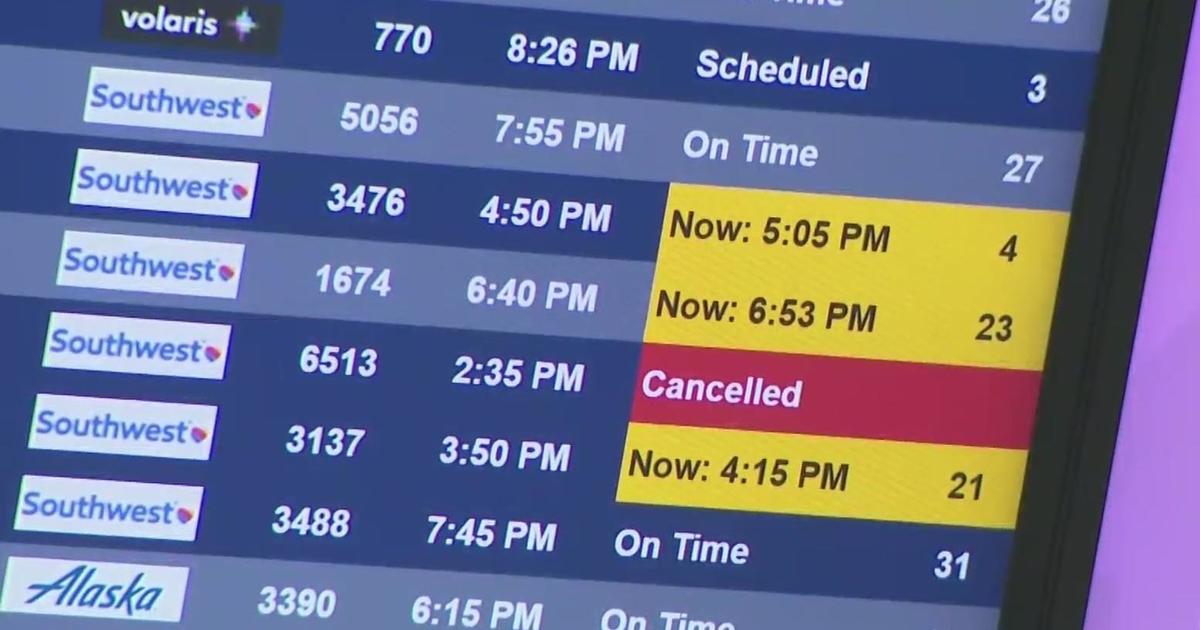Drug Users Getting Paid To Try New Formulations In Effort To Reduce Painkiller Abuse
(KPIX 5) – The rise of prescription drug overdoses in the U.S. is leading to research which involves paying recreational drug users to try new formulations, in the hope of reducing the abuse and addiction to painkillers.
"We need new ways to prevent people from harming themselves essentially," explained pain management expert Dr. Lynn Webster, who is heading one of the trials on new, abuse-deterrent drug formulations.
The background, and a landmark verdict
It's a national epidemic. According to the Centers for Disease Control and Prevention, drug overdose is the leading cause of injury death in the United States.
"Every day, 44 people die in American communities from an overdose of prescription opioids and many more become addicted," said CDC director Dr. Thomas Frieden.
An estimated 48 million people in the U.S. have used prescription drugs for non-medical reasons.
Last Friday, a verdict was handed down in a landmark case that involving prescription opioids.
Southern California physician Dr. Lisa Tseng was convicted of second-degree murder in the deaths of three young men who overdosed on the painkillers prosecutors say she recklessly prescribed.
One victim was Joey Rovero of San Ramon. He didn't have a medical condition for the painkillers and sedatives he was prescribed by Dr. Tseng. The college student just wanted to party.
Nine days after Dr. Tseng wrote Rovero the prescriptions, he overdosed, died, and left behind a grieving family.
"We have been absolutely devastated by our son's death," said his mother, April Rovero.
Prosecutors said this is the first time a medical doctor was convicted of murder in the U.S. by overprescribing prescription drugs. Dr. Tseng's attorney Tracy Green said her client will appeal the verdict.
Seeking a new approach
After her son's death, April Rovero established the National Coalition Against Prescription Drug Abuse, an organization dedicated to generating nationwide awareness about the dangers of prescription drug abuse.
She knows that powerful painkillers are critical for those who need them, but questions why do they have to be so dangerous.
"I mean if we can go to the moon, why can't we find a treatment for pain that is not addictive and isn't going to kill you potentially?" asked Rovero.
One approach is to come up with a new kind of pain pill that's hard to abuse, and pay individuals to use them to see if they can get high.
At PRA Health Sciences in Salt Lake City, this approach is underway. Hundreds of recreational drug users pass through the doors of the clinic to test out the next generation of prescription pain pills.
"Matt" is one of them. He is enrolled in PRA's Human Abuse Liability research.
"My friend introduced me to it and he was, like, 'yeah I go to this place and we do opiates and I get paid thousands of dollars,' and I was, like, 'What?'" laughed Matt.
At PRA's research facility, several human abuse liability trials are underway. They're funded by pharmaceutical companies who are looking to make abuse-deterrent formulations.
These pills are designed with tamper-proof technology. The goal is to see if real-life recreational drug users enjoy taking them as much as they do current pain pills.
The hope is that they won't. If the pills are successful in deterring abuse, they can receive a special drug label. The U.S. Food and Drug Administration has strongly encouraged pharmaceutical companies to conduct these studies. If a new pill can show it has abuse deterrence, it can receive a special marketing label from the FDA.
PRA Health Sciences is one of a handful of centers in the North America who do these trials and arguably the most prominent.
Dr. Webster heads up these studies at PRA. He is Vice President of Scientific Affairs and a pain specialist as well as a pain researcher. Dr. Webster has written extensively on the topic and maintains a website and blog on pain research.
The clinical trials do not enroll addicts, who are screened out using a special protocol. Thanks to the FDA and the National Institutes of Health, the identities of the recreational drug users are protected and kept confidential from law enforcement.
Getting paid to 'party'
Most recruits are young, and male. Like Matt, they often hear about the Human Abuse Liability studies through friends and word of mouth.
"Many of them will come in with their friends and this becomes a cheap party where they can earn some money," said Dr. Webster.
Participants get paid between $250 and $300 a day. They cannot leave the premises until the drugs have cleared their system. Some trials last up to a month. Subjects are housed in special dormitories.
Matt said he is paid remarkably well. He said it pays so much, that he has more free time to spend with his young daughter.
"It's like a paid vacation," explained Matt. "You get to relax, watch movies, the staff's phenomenal. They treat us like kings. They feed us well."
Some trials involve pills that are formulated with a hard shell or polymer that makes them tough to crush and unpleasant to snort.
Dr. Webster said the evidence shows how this formulation is associated with more than a 30% drop in abuse.
Other pills contain a special chemical that when the pill is crushed, it renders them useless. It neutralizes all the positive, painkilling effect.
A typical study is double-blinded, with the participant receiving a series of pills over a set amount of days. The pills will be one of several kinds: the medication that's currently on the market, the test pill, and a placebo or sugar pill.
Neither the researcher nor the participant knows what pill is about to be swallowed or powder to be snorted. After the pill or powder is ingested, researchers will question the participant about the effects.
The outlook
Dr, Webster is clear that these tamper-proof or abuse-deterrent drugs won't solve America's addiction and abuse problem. In 70% of the cases, leftover prescription drugs are stolen from the medicine cabinets of loved ones. Addicts will just swallow more pills and wait for them to take effect.
April Rovero wants parents to know and talk about the dangers of prescription drugs with their kids. Rovero also wants doctors to be extremely careful with who gets a prescription, noting what just happened with Dr. Tseng.
"I would hope that it would be a wakeup call for them and that they would understand that they too could be sitting in that courtroom going thru a trial at some point," said Rovero.



